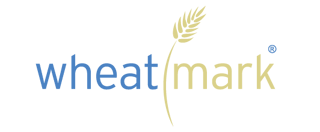There’s a lot of buzz about hybrid publishing in the writing and publishing communities, coupled with an equal amount of misunderstanding and confusion. Not surprising. As the name suggests, hybrid publishing is a cross between traditional and indie publishing, incorporating some features of each. There are a wide variety of hybrid publishing business models, depending on which features are incorporated. Here are some of the features to watch for when evaluating a hybrid publisher:
Curation
The best hybrid publishers do the high-level editorial work that traditional publishers do: Screening submissions and accepting only those of merit with a reasonably large potential market, and working closely with authors on design and editing to create the best books possible.
Financing
Nearly all hybrid publishers require the author to finance all or part of the publishing, editorial, and marketing costs, usually through the payment of upfront fees.
Rights
Some hybrid publishers want an exclusive license to sell your book, and all subsidiary rights. Others allow only want a nonexclusive license, and allow you to retain all of your subsidiary rights.
Distribution and Sales
All published books, traditional, hybrid, or indie, have access to major online retailers like Amazon.com. But, some hybrid publishers offer distribution to the trade (brick-and-mortar bookstores, gift shops, special markets, etc.) through distributors like Ingram Publisher Services (IPS), a subsidiary of Ingram Book Group. A distributor usually has curated catalogs of books and a sales force that calls on accounts. Still other hybrid publishers have their own catalogs and salespeople.
Marketing
Many hybrid publishers provide publicity and platform building services for their authors. Often these services are provided for every book they publish as part of an overall suite of publishing services.
To my mind, curation is the most important thing to look for in a hybrid publisher, as it provides the branding that distinguishes your book from the sea of indie published books on CreateSpace or iUniverse.
I talk more about these exciting new publishing models in a recently released Authors Academy webinar. In it you’ll discover whether hybrid publishing is right for your project, the different varieties of hybrid publishers, and how to work with hybrid publishers.
If you’re a member of the Authors Academy, just log in and find the webinar “What Is Hybrid Publishing?”
If you’re not yet a member, visit authorsacademy.com/authors to join now!





